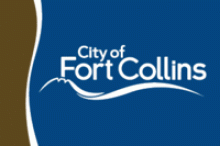Fort Collins, CO, Considering November Ballot Measure
After tentative plans to work with a private sector partner fell through, Fort Collins is still moving forward. The city wants the option to provide residents and businesses with gigabit connectivity as a municipal service, necessitating a ballot initiative in November to change the city charter. The ballot initiative would allow the Light and Power Utility to provide Internet services and may also ask voters to consent to use municipal bonds to fund the Internet network infrastructure project.
The city estimates the project will cost between $125 million and $140 million and will cover the entire city and its “growth management area,” which is land that is expected to be annexed in the future.
A Long And Winding Road
In 2015, voters in Fort Collins reclaimed local authority by opting out of SB 152, which discourages cities from investing in Internet infrastructure in order to offer services themselves or with private sector partners. The pro-local sentiment was so popular that 83 percent of voters supported opting out.
From there, the city pursued a partnership with Axia. However, the Canadian company pulled out of discussions with Fort Collins and a similar deal with Bloomington, Indiana. Axia’s parent company, Partners Group, was reportedly hesitant to enter the U.S. market and compete with large, incumbent providers Comcast and CenturyLink. Axia Networks USA was operating MassBroadband 123 in Massachussetts and filed for bankruptcy earlier this year, leaving the state searching for another company to manage the statewide fiber-optic network.
The city is still open to partnering with a private sector partner, but is leaning toward providing services through their existing Light and Power Utility. We've seen other deals between municipalities fall apart when they seemed like sure things, which indicates that municipalities must always take care when establishing a relationship with a potential partner.



